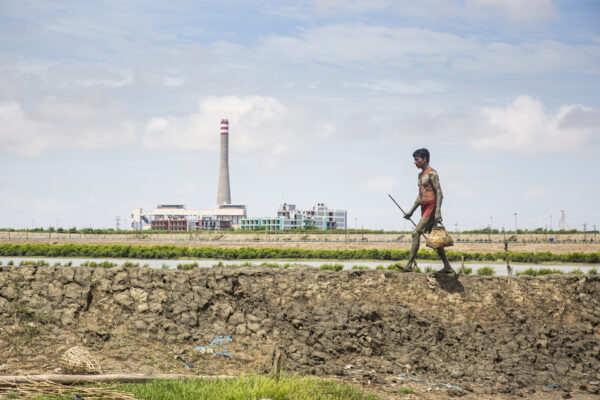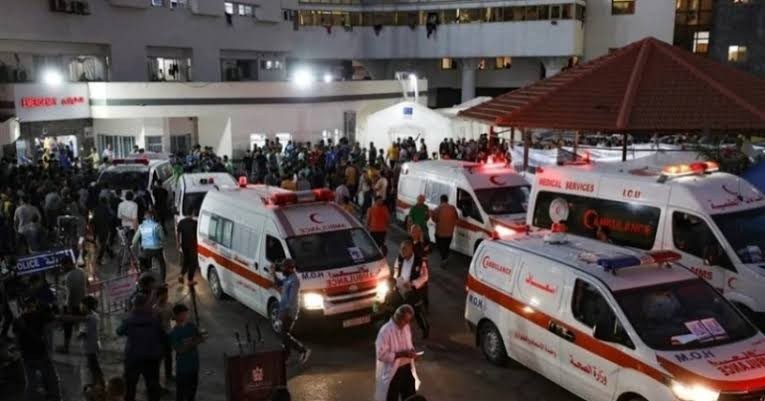Copyright thediplomat

A new and unique photo exhibition by Bangladeshi photographer Noor Alam is being mounted at a gallery in Tokyo in November 2025. The photography captures how the daily lives of communities in the Matarbari region of southeastern Bangladesh -- including fishing, farming, and family life by the sea -- continue under the expanding shadow of coal and gas-fired power plants. Through the lens of contemporary Bangladeshi society, smoke and sea symbolize livelihoods, loss, and transformation in the face of the climate crisis. After successfully preventing a massive new coal-fired power station, Bangladeshis in the Chattogram division are being pushed by foreign interests to accept huge polluting liquefied natural gas (LNG) power plants and infrastructure. New LNG power projects and import terminals will cost the Bangladesh economy $50 billion, according to a recent Market Forces report, threatening the safety and health of millions of Bangladeshis due to toxic pollution and worsening climate disasters, such as floods and cyclones. Bangladeshi consumers are already bearing the brunt of high electricity bills, a situation set to worsen if reliance on expensive imported LNG continues. As Bangladesh faces brutal heatwaves and demand for power soars, US$50 billion is set to be invested in the LNG industry, worsening global warming. However, $36 billion spent on gas power plants could instead be used to make Bangladesh a clean energy powerhouse by enabling 62 Gigawatts of renewable power, over two times the country’s current total electricity generation capacity. [caption id=attachment_298079 align=aligncenter width=2000] ©Noor Alam[/caption] Betel leaf farmer Abdullah and many other farmers have been displaced from their ancestral lands at Kalamarchara, Maheshkhali. “I once had land where I used to grow betel leaf and other crops. The project authorities took all of it. They are building large pipelines and other structures in the acquired area to transport gas from the deep sea. Now I work as a day laborer just to survive.” [caption id=attachment_298080 align=aligncenter width=5760] ©Noor Alam[/caption] Monaza Begum prepares vegetables for her children and family in Matarbari after being displaced by a huge coal power plant. “The coal power authority told us we would be compensated for everything, for the trees, for our homes, for the land itself. But then they have given us nothing. When they didn’t pay, we refused to leave. We said, ‘Where will we go if we give up our homes and land?’ Even when others had already left, we still didn’t want to go. Then the excavators came. They forced us out and destroyed everything: our houses, our trees, our land.” [caption id=attachment_298081 align=aligncenter width=5760] ©Noor Alam[/caption] Mohammad Belal, his father, and family lost their farming lands when a massive industrial coal project in Moheshkali and Matarbari displaced the livelihoods of thousands of fish, salt and betel leaf farmers. “My father is a farmer, and so am I. Our land was our only source of livelihood. The Bangladesh Coal Power Company has taken over this land. People are being harassed constantly. Corrupt groups have taken huge amounts of money during the compensation process, cheating farmers of what was rightfully theirs.” [caption id=attachment_298082 align=aligncenter width=3827] ©Noor Alam[/caption] Children play at the Matarbari resettlement area in the shadow of a coal power plant and a polluting smoke stack, where 44 families are squeezed into a small area and there is not enough space for a children's playground. [caption id=attachment_298083 align=aligncenter width=4590] ©Noor Alam[/caption] Children living in the shadow of the enormous Matabari coal power plant and its toxic pollution have extra duties and responsibilities to look after poultry, domestic animals and vegetable gardens in the area where they have been resettled nearby. [caption id=attachment_298084 align=aligncenter width=3326] ©Noor Alam[/caption] Umme Hafsa Khanom is one of many women who have set up a fashion and textile business to provide for their families after being displaced by monster coal power projects near Matabari in Southeast Bangladesh. [caption id=attachment_298085 align=aligncenter width=2000] ©Noor Alam[/caption] Salt farmer worker Bihaan sorts his precious cargo in Matarbari. Bihaan has many friends among thousands of salt workers who have lost their livelihoods without any compensation due to the Matarbari coal power plant. The plant has been built on land used for shrimp, crab and salt farming. [caption id=attachment_298086 align=aligncenter width=5760] ©Noor Alam[/caption] Fisherman Mehedi Hasan worked tirelessly to provide for his children and family, fishing in the rainy season and salt farming in winter. Mehedi was struck by lightning and killed last month in one of many freak storms, which are happening more often in Bangladesh. [caption id=attachment_298087 align=aligncenter width=5760] ©Noor Alam[/caption] Razia Begum says her goats, animals and her family kept her alive after losing homes when embankments collapsed. Huge areas of sand were taken to build a massive coal power plant in Sightpara, Matarbari. Razia is working to build a safe home powered by solar energy. “Three of my houses have been damaged, one collapsed, the last one still stands, but it’s also breaking down after they dredged sand for the coal power plant.”



